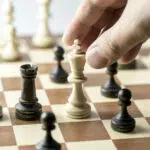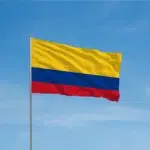We celebrate International Chess Day on July 20, a day that was born from an idea the United Nations Educational, Scientific, and Cultural Organization (UNESCO) had. Chess lovers around the world celebrate their favorite game on this day each year, in a tradition spanning more than 50 years.
History of International Chess Day
The origins of chess are a matter of debate. Multiple theories attribute the beginning of this game to countries like India, China, Russia, and Central Asia.
A popular theory credits the Indian war game — ‘chaturanga’ — as the inspiration for chess. People regard this as the precursor of chess as it had two key features found in later chess variants — different pieces had different functions and the victory was based on one piece (the king, in modern chess). Versions of this game reached the east, north, and west, taking on very different characteristics each time. A version of chaturanga or a later variant called ‘shatranj’ made its way into Europe through Persia, the Byzantine Empire, and the Arabian Empire.
It is believed that the reason chess pieces do not have distinctively human/animal features is because of the Islamic influence. Islam religion forbids making statues of people or animals, so this is probably why chess pieces are so vague looking.
The expanding Arabian empire took chess to North Africa, Sicily, and Spain by the 10th century. At the same time, chess was being spread around the globe, Eastern Slavs took it to Kievan Rus’ and the Vikings brought the game to Iceland and England.
Chess’s popularity can be attributed to the fact that it was associated with wealth, knowledge, and power. It evolved to resemble the current version of chess in England by the 15th century.
The game as we know it was soon established by an Englishman, adopting the black and white squares we know so well. Modern history shows many events and competitions in relation to chess and exciting new variations of the game, which added to chess’s popularity. Further advancements soon made this game what it is today — reliable timing mechanisms came around, rules of play were put into effect, and charismatic world players burst onto the scene.
The General Assembly proclaimed July 20 as International Chess Day to mark the date of establishment of the International Chess Federation (FIDE). Millions of chess players around the world celebrate this day and this game.
International Chess Day timeline
The Indian war game ‘chaturanga,’ which is remarkably similar to chess and is sometimes seen as its precursor, is played across northwestern India.
A manuscript from this age shows a record of a chess game between a Baghdad historian and his pupil.
King Louis IX forbids people from playing this game in France.
The game spreads across continents, increasing in popularity — it is known as the royal game in England.
A series of six matches are held between the leading French and British players, Louis-Charles Mahé de La Bourdonnais of Paris and Alexander McDonnell of London — Bourdonnais wins and this event is analyzed and reported extensively.
An Englishman, Nathaniel Cook, establishes a standard design for the chess game set.
After the new standard chess set is patented, famous player Howard Staunton endorses it, thus resulting in it being called the 'Staunton pattern' — even today, only sets based on this design are allowed in international competition.
Chess players are now being timed reliably — the mechanism to do so is introduced in this period.
The International Chess Federation (FIDE) is established in Paris.
International Chess Day is observed from this day to mark the day the International Chess Federation (FIDE) was founded.
The U.N. General Assembly proclaims July 20 as World Chess Day.
International Chess Day FAQs
Is today National Chess Day?
National Chess Day is celebrated on the second Saturday in October each year.
What is the full form of FIDE?
FIDE is officially called the Fédération Internationale des Échecs but is translated to the International Chess Federation.
Which country is strong in chess?
FIDE rankings put Russia at the top, with the U.S. coming in second place, and China in third.
How To Celebrate International Chess Day
Join a chess club
Middle schools and high schools. Local community centers. Sports clubs. Online groups. There are several different places chess clubs thrive in. Take a look around your city and locate a local chess club, or find a reputable one online. Join and play (or learn to play) with new people, and maybe even learn some new chess moves along the way.
Play human chess
Excuse the Harry Potter reference, but go ahead and channel your inner Ron Weasley by moving your friends around like giant chess pieces. Organize a fun weekend event, inviting at least 32 people to play correctly. An easy way to do it would be to get everyone to wear black or white clothes with chess pieces on them to identify each person's function.
Have a chess-themed movie night
Get your loved ones together for a chess-themed movie night. You can select from “Searching for Bobby Fischer” (1993), “Queen of Katwe” (2016), or the recent Netflix series, “The Queen's Gambit” to begin with.
5 Fun Facts About Chess
Chess is banned in Russian Antarctic stations
A match in 1959 became so heated, one player attacked another with an ice ax.
Chess players make up a LARGE community
A 2012 survey found that about 605 million adults around the world play chess on a regular basis.
The oldest surviving complete chess set
The wizard chess pieces in “Harry Potter and the Sorcerer’s Stone” were based on this medieval set, which was found on the Isle of Lewis in northern Scotland and is from the 12th century.
Computers beating humans at chess
A new frontier in computing came when a computer beat chess world champion Garry Kasparov in 1996 — now they do it all the time.
Chess masters can beat you blindfolded
Hungarian chess player János Flesch set a world record in Budapest in 1960, playing 52 opponents simultaneously while blindfolded and winning 31 of those games.
Why We Love International Chess Day
Chess breaks barriers
This game — or at least some versions of it — has been played since ancient times. It combines sport, strategy, scientific thinking, and elements of art into one of the most intellectual pastimes of our world.
It unites everyone, everywhere
Chess has been, and continues to be, played by people around the world. People of all ages, genders, social statuses, and physical abilities can play this game. Researchers even believe that chess can contribute to an atmosphere of tolerance and understanding among nations and cultures.
Chess is healthy, too
The game of strategy is great for our brain cells. Psychologists recommend playing chess to improve memory function and doctors prescribe it to fight Alzheimer’s. The effects of chess on young children — it is proven to increase grades, promote social behaviors, among other positive effects — have led to chess being introduced in school curriculums across various countries.
International Chess Day dates
| Year | Date | Day |
|---|---|---|
| 2025 | July 20 | Sunday |
| 2026 | July 20 | Monday |
| 2027 | July 20 | Tuesday |
| 2028 | July 20 | Thursday |
| 2029 | July 20 | Friday |





















